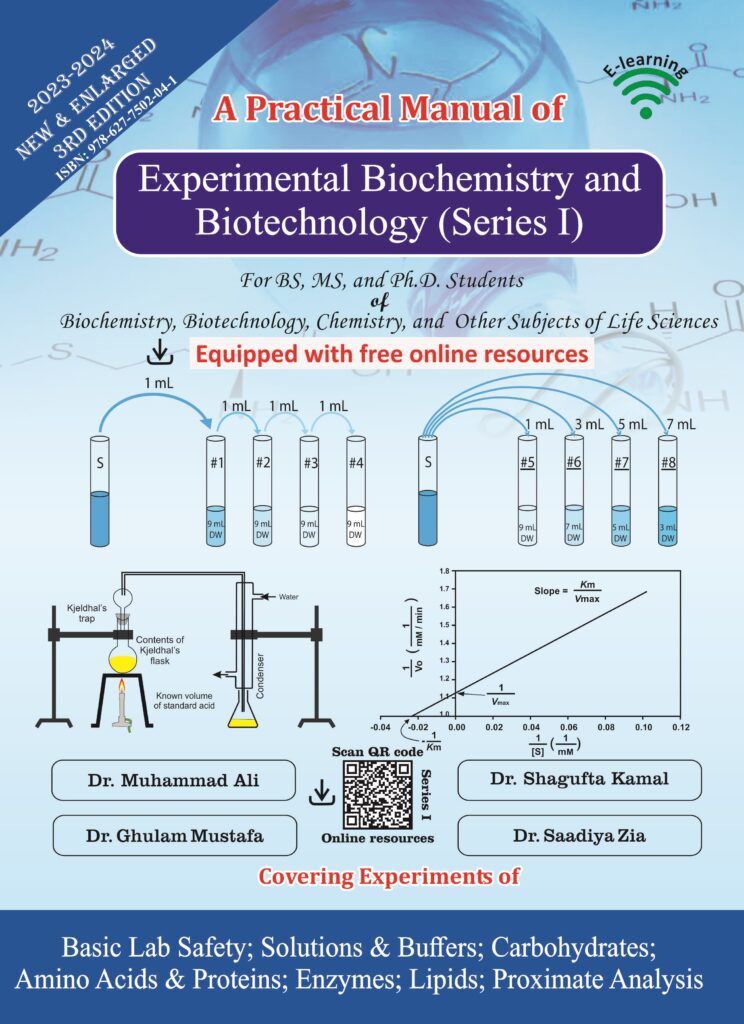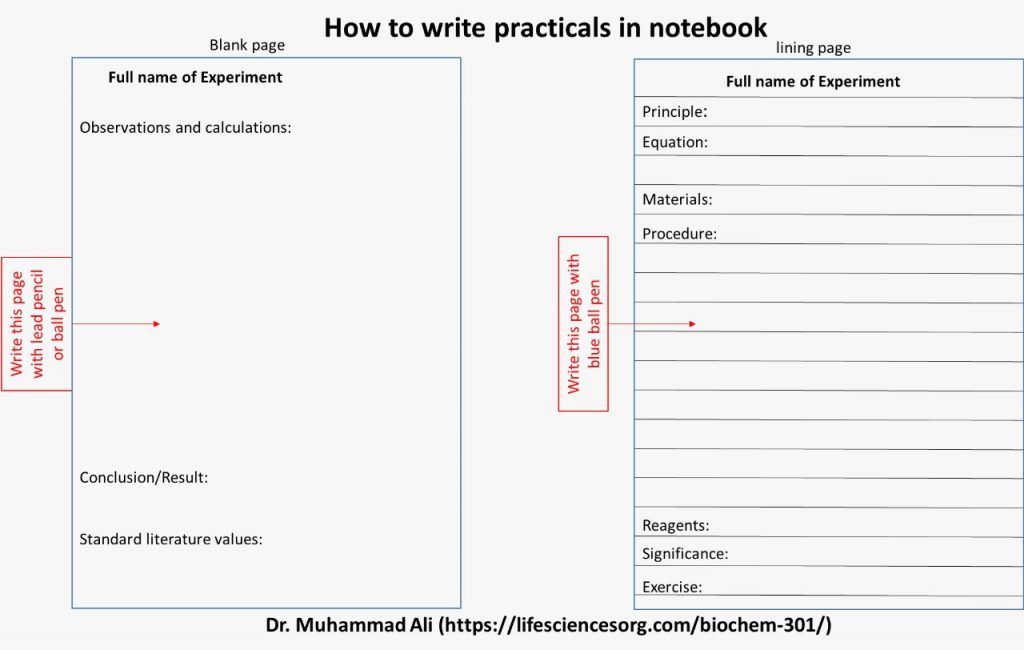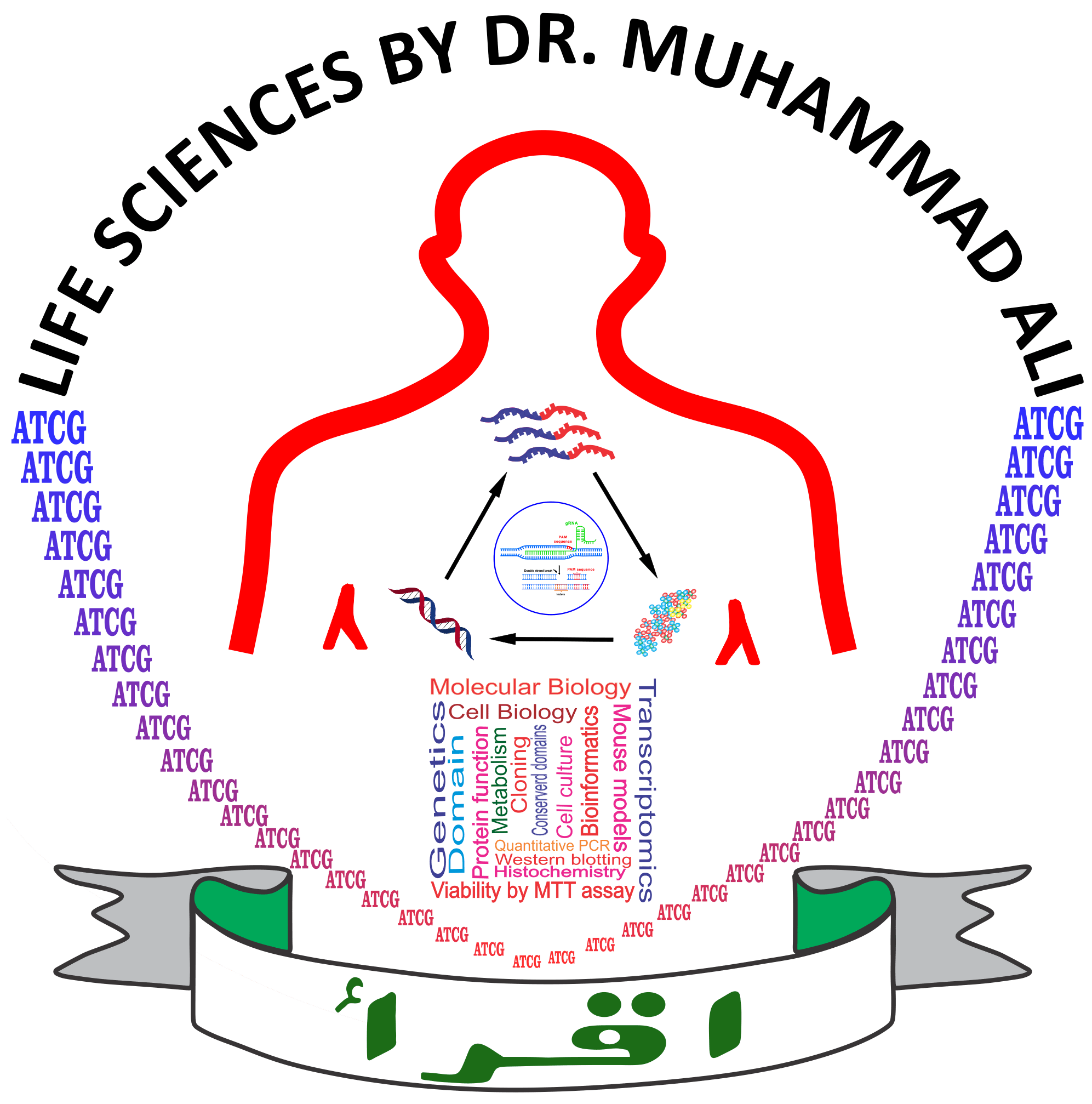Biochem-301 (list of practical)
- pH metry and determination of pH value of biological fluids. (Will make observations)
- Preparation of buffers of definite pH. (2.1, 2.3, 2.7, 2.8, 2.9, 2.19, 2.22)
- Estimation of optical activity by polarimetry. (3.10-, 3.11)
- Qualitative analysis of carbohydrates. (3.1- 3.8)
- Qualitative analysis of urine for normal and abnormal constituents like albumins, acetone bodies and sugar. (I will provide)
- Estimation of glucose in biological fluids. (3.9, 3.10)
- Determination of acid value, (6.3)
- Saponification value (6.5)
- and iodine values of fats/oils. (6.6)
- Estimation of lactose and casein in milk. (7.11)
Mid-term syllabus of Biochem-301: A general introduction to the science of biochemistry and its importance. Ionization of water, weak acid and weak bases, Define and describe pH, buffers, diffusion, osmosis and osmotic pressure. Enzymes: Classification, nomenclature, characteristics, coenzymes, cofactors and prosthetic groups. Mechanism of enzyme action. Enzyme inhibition. Carbohydrates: Classification, characteristics, aerobic and anaerobic oxidation of glucose; glycolysis, citric acid cycle, Electron transport chain (ETC) and fermentations, biological functions of carbohydrates.
…. PLUS…. 150 MCQs from each of chapters 2 (150) and 6 (150) of the book ” MCQs in Biochemistry”. MCQs from the taught concepts and book chapters will also appear in the exam.
Final exam Biochem-301: Lipids: Composition and classification, structure of saturated and unsaturated fatty acids and their properties, characteristics of fats and oils, general metabolism of fats and oils. Proteins: Composition and classification, characteristics and classification of amino acids, peptides and level of structural organization of proteins, physiological function and general metabolism of proteins. Nucleic acids: Chemical composition, structure of DNA and RNA and its types. A general overview of central dogma of molecular biology.
…. PLUS…. 150 MCQs from chapters 3 (150), 4 (150), 9 (150), 2 (150), 6 (150) of the book ” MCQs in Biochemistry”. MCQs from the taught concepts and book chapters will also appear in the exam.
Start preparing your presentations and assignments….. Assignment submission is the second week of next month, October 2023. The presentations will also be started after mid-term exam.
K. General Question to be asked during presentation
- Pathway or importance of gene/technology/discovery
- Rationale
- Conclusion of the full article
- Conclusion of every figure
- New findings presented in the article
- Applications of the findings
- Future prospective
- Applications of the work
- Principle of every technique used in the research article
Moreover, provide me a printed summary of your article containing the above headings given under ‘K’.
L. During Presentations, for EVERY FIGURE and graph, we may ask:
1. The Principle of the experiment.
2. The Reason for doing the experiment.
3. The Physiological importance of the figure.
4. The Conclusions of the figure
5. Prepare well objectively and subjectively
NO EXCUSE WILL BE ACCEPTED
__________________________________________________________________________________
Presentations of Biochem-301:
- The weightage of the assignment and presentation will be decided later.
- Start preparing your presentations……
- The presentations will also be started right after the mid-term exam.
- PPT file should not contain any designing/colours other than figures and diagrams.
- Slides should be in 16X9 ratio.
- Fonts of all header should be same and of all other text should be same.
- For detailed guidelines about the presentation of research article, visit: https://www.lifesciencesorg.combiochem-720/
- Download the template ppt file to make your presentation. The link is here (copy this link and paste in a new tab).
Some important questions to be asked from students during presentation
- 1) Pathway or importance of gene/technology/drug
- 2) Rationale (justification of the project in this paper)
- 3) Conclusion of every figure
- 4) Conclusion of full article
- 5) New findings present in the article
- 6) Applications of the finding/s.
- 7) Future prospective
- 8) Principle of every technique used in the research article
NO EXCUSE WILL BE ACCEPTED
_______________________________________________________________
Link to download the book ( MCQs in Biochemistry) is here.
Meeting ID: 316 824 288 013
Passcode: WNyjeA
Microsoft teams will be used whenever online classes will be held. You must make your first name as your registration number.
2017-ag-9382 Haidar Iftikhar
2017-ag-10077 Ahmad Faraz
Biochem-301, BS HND, E-Winter 2023-24, Dr. Muhammad Ali |
||||
| Sr. | Ag No. | Student’s Name | Group | Research article for presentation and 1 page summary |
| 1 | AYSHA | MUSHTAQ AHMED | G1 | Emodin attenuates high lipid-induced liver metastasis through the AKT and ERK pathways in vitro in breast cancer cells and in a mouse xenograft model |
| 2 | SADIA TANVEER | MUHAMMAD TANVEER ANWAR SIDHU | ||
| 3 | KHADIJA FAEOOQ | FAROOQ AHMAD | ||
| 4 | MARIA SALEEM | MUHAMMAD SALEEM | ||
| 5 | TAIBA GHAFFAR | ABDUL GHAFFAR | ||
| 6 | NATASHA IRFAN | MUHAMMAD IRFAN | ||
| 7 | HAFIZA MARYAM | MUHAMMAD RIZWAN | ||
| 8 | AMNA TARIQ | TARIQ MEHMOOD | G2 | PRMT6 Regulates RAS/RAF Binding and MEK/ERKMediated Cancer Stemness Activities in Hepatocellular Carcinoma through CRAF Methylation |
| 9 | M HANZALA SHEHZAD | ATIF SHEHZAD | ||
| 10 | RIMSHAH QAMAR | HABIB QAMAR | ||
| 11 | ROHMA SHARAZ | SHARAZ AKHTER SINDHU | ||
| 12 | EMAN FATIMA | ASGHAR ALI | ||
| 13 | EMAN FATIMA | SHAHID MEHMOOD | ||
| 14 | HASSAN RAZA | IRFAN UL HAQ | ||
| 15 | SAYEEDA HAFSA | SYED MAQSOOD HUSSAIN SHAH | G3 | Impaired LXRa Phosphorylation Attenuates Progression of Fatty Liver Disease |
| 16 | ASHMAL MAHEEN | SHABBIR AHMAD | ||
| 17 | HAFIZA MUNTAHA KHALID | MUHAMMAD KHALID | ||
| 18 | MEMOONA MEHMOOD | KHALID MEHMOOD | ||
| 19 | MALAIKA ARFAQ | ARFAQ AHMAD | ||
| 20 | MISBAH NOREEN | MUHAMMAD SHAHID IQBAL | ||
| 21 | EMAN FATIMA | MUHAMMAD AFZAL | ||
| 22 | AISHA FATIMA | UMER FAROOQ | G4 | Aldolase B-Mediated Fructose Metabolism Drives Metabolic Reprogramming of Colon Cancer Liver Metastasis |
| 23 | AYESHA | MUHAMMAD HAFEEZ | ||
| 24 | EMAN AFZAL | MUHAMMAD AFZAL ZAHID | ||
| 25 | WISHAH ZAINAB | QAMAR ABBAS | ||
| 26 | LAIBA NOOR | MUHAMMAD AFZAL | ||
| 27 | JAVERIA BIBI | FAIZ ULLAH | ||
| 28 | SARA IJAZ | IJAZ AHMAD CHATTHA | ||
| 29 | HAMNA AZEEM | MUHAMMAD AKRAM | G5 | Treatment of acromegaly by rosiglitazone via upregulating 15-PGDH in both pituitary adenoma and liver |
| 30 | EESHA HUSSAIN | NASIR HUSSAIN | ||
| 31 | MAHEEN MAJID | MAJID MUNIR | ||
| 32 | SEERAT FATIMA | JAVEED IQBAL | ||
| 33 | SAIQA NOOR | MUHAMMAD AMIN | ||
| 34 | AIMEN | HAMID | ||
| 35 | KAINAT NOREEN | MUNAWAR HUSSAIN | ||
| 36 | AYESHA JAVED | JAVED AZIZ | G6 | In vivo CRISPR screens identify the E3 ligase Cop1 as a modulator of macrophage infiltration and cancer immunotherapy target |
| 37 | FATIMA MEHMOOD | SHAHID MEHMOOD | ||
| 38 | USHBA MARIA | ABDUL BASIT | ||
| 39 | HAFISA MUHAMMAD | MUHAMMAD ZUBAIR HAMEED | ||
| 40 | KINZA TUL EMAN | SHABBIR AHMAD | ||
| 41 | TAYYABA AWAN | MUNIR AHMAD ALVI | ||
| 42 | AMNA RUHTAB | MUHAMMAD IRSHAD | ||
| 43 | MARYAM KHALIQ | ABDUL KHALIQ | G7 | Selective Surface PEGylation of UiO-66 Nanoparticles for Enhanced Stability, Cell Uptake, and pH-Responsive Drug Delivery |
| 44 | AKASHA SHAH JEHAN | SHAH JEHAN | ||
| 45 | SHIZZA SAEED | SAEED KHALIQ | ||
| 46 | TASKEEN FATIMA | MUHAMMAD RASHEED | ||
| 47 | AREESHA ABID | ABID KHURSHID | ||
| 48 | FATIMA SHAHID | MUHAMMAD SHAHID | ||
| 49 | FAIZA ZIA | ZIA MAJEED | ||
| 50 | ATIKA SHAFAQ | ZAHID RAZA | G8 | Preventing Allograft Rejection by Targeting Immune Metabolism |
| 51 | MUHMMAD BILAL SARWAR | GHULAM SARWAR | ||
| 52 | EISHA SAHAR | MUHAMMAD AQEEL | ||
| 53 | MAHEEN RAZA RAFI | AHMAD RAZA RAFI | ||
| 54 | YASHFA FATIMA | FAIZ UL HASSAN SHAH | ||
| 55 | HIFZA NOOR TARIQ | TARIQ MEHMOOD | ||
| 56 | ALLIHA ASIF | ASIF HUSSAIN | ||
| 57 | AMNA | MUHAMMAD ASHRAF | G9 | Alteration of Tumor Metabolism by CD4+ T Cells Leads to TNF-a-Dependent Intensification of Oxidative Stress and Tumor Cell Death |
| 58 | MARIAM ARIF | MUHAMMAD ARIF | ||
| 59 | MAHEEN SABIR | SABIR HUSSAIN SHAH | ||
| 60 | RAMEEN SHAHZAD | SHAHZAD WASIM | ||
| 61 | AYESHA SADDIQA | FAISAL IJAZ | ||
| 62 | AYESHA RIAZ | MUHAMMAD PERVAIZ | ||
| 63 | SAMA PERVAIZ | ZULIFQAR AHMAD PERVAIZ | ||
| 64 | FATIMA NADEEM | NADEEM HAIDER | G10 | Controlling cancer-induced inflammation with a nucleic acid scavenger prevents lung metastasis in murine models of breast cancer |
| 65 | ALEEZA FATIMA | MUHAMMAD HUSSAIN | ||
| 66 | AYESHA NADEEM | MUHAMMAD NADEEM | ||
| 67 | Faiqa Noor | |||
| 68 | Areeb Rubab | |||
| 69 | Rimsha Ishtiaq | |||
| 70 | Izza | |||
| 71 | Saika noreen | |||
| 72 | Vaneeza Shahbaz | |||
| 73 | Sadia Khalid | |||
| 74 | Sajal Rashad | |||
| 75 | Eman Shafiq | |||
| 76 | Farwa Naz | |||
| 78 | Rimsha Naveed | |||
| 79 | Zainab Haidar | |||
| 80 | Faiqa Noor | |||
| 81 | Areeza Rubab | G11 | PRMT6 Regulates RAS/RAF Binding and MEK/ERKMediated Cancer Stemness Activities in Hepatocellular Carcinoma through CRAF Methylation | |
| 82 | ||||
| 83 | ||||
| 84 | Eman Tayyab | 2022-ag-5744 | ||
| 85 | Malaika Ajmal | 2022-ag-5701 | ||
| 86 | Laiba Ghaffar | 2022-ag-5703 | ||
| 87 | Mahe Mubeen | 2022-ag-5739 | ||
| 88 | Rabia Yaseen | 2022-ag-5746 | ||
| 89 | Umm-E-Aime | 2022-ag-5760 | ||
| 90 | Muhammad Salman | 2022-ag-5741 | ||
| 91 | Umar Ashraf | 2022-ag-5702 | ||
| 92 | Awais afzal | 2022-ag-5711 | ||
BIOCHEM-301 ELEMENTARY BIOCHEMISTRY 3(2 -1)
Course Learning Outcomes
By the end of this course students will be able to;
- Students will be able to understand the knowledge of buffers and will also be able to learn its preparation practically.
- Students will learn the basic knowledge about enzymes.
- Students will be able to understand basics of major biomolecules like carbohydrates, lipids, Proteins and Nucleic acids.
- Students will practically learn the qualitative/quantitative analysis of biological molecules that are also nutritional important like carbohydrates, proteins, lipids etc.
Theory
A general introduction to the science of biochemistry and its importance. Ionization of water, weak acid and weak bases, Define and describe pH, buffers, diffusion, osmosis and osmotic pressure. Enzymes: Classification, nomenclature, characteristics, coenzymes, cofactors and prosthetic groups. Mechanism of enzyme action. Enzyme inhibition. Carbohydrates: Classification, characteristics, aerobic and anaerobic oxidation of glucose; glycolysis, citric acid cycle, Electron transport chain (ETC) and fermentations, biological functions of carbohydrates. Lipids: Composition and classification, structure of saturated and unsaturated fatty acids and their properties, characteristics of fats and oils, general metabolism of fats and oils. Proteins: Composition and classification, characteristics and classification of amino acids, peptides and level of structural organization of proteins, physiological function and general metabolism of proteins. Nucleic acids: Chemical composition, structure of DNA and RNA and its types. A general overview of central dogma of molecular biology.
Practical
pH metry and determination of pH value of biological fluids. Preparation of buffers of definite pH. Estimation of optical activity by polarimetry. Qualitative analysis of carbohydrates. Qualitative analysis of urine for normal and abnormal constituents like albumins, acetone bodies and sugar. Estimation of glucose in biological fluids. Determination of acid, saponification and iodine values of fats/oils. Estimation of lactose and casein in milk.
Suggested Readings
- Ahmad, M. 2019. Essentials of Medical Biochemistry Vol-I. 9th Ed. Nishtar Publications Press. 10A Model town Multan.
- Boyer, R. F. 2012. Biochemistry Laboratory, Modern theory and techniques. 3rd Pearson Education, New Jersey, USA
- Murray, R. K., D. A. Bender, K.M. Botham, P. J. Kennelly, V. W. Rodwell and P. A. Weil. 2021. Harper’s Illustrated Biochemistry. 32nd MvGraw Hill, NY, USA
- Nelson, D. L. and M. M. Cox. 2021. Lehninger Principles of Biochemistry. 8th WH Freeman & Company, NY, USA
- Nigam, A and A. Archana . 2008. Lab manual in Biochemistry, Immunology and Biotechnology. 3rd Ed Tata Mcgraw Hill Publishing Company (Pvt.) Ltd. New Dehli, India
- Sawhney, C. K. and R. Singh. 2014. Introductory Practical Biochemistry. 5th Norosa Pub. House, New Dehli, India
- Ali, M. et al., Experimental Biochemistry and Biotechnology (Series I), 2023, 3rd edition, ISBN: 978-969-7502-04-
- .Ali, M. et al., Experimental Biochemistry and Biotechnology (Series II), 2023. 2nd edition, ISBN: 978-969-7502-05-8.
- Ali, M. et al., Experimental Biochemistry and Biotechnology (Series III), 2024, 1st edition, ISBN: 978-969-7502-06-5




Comments are closed.